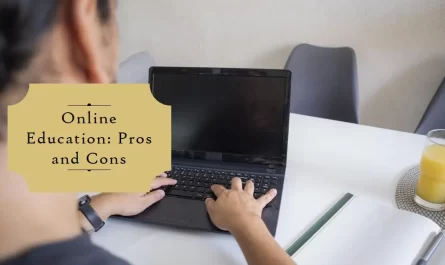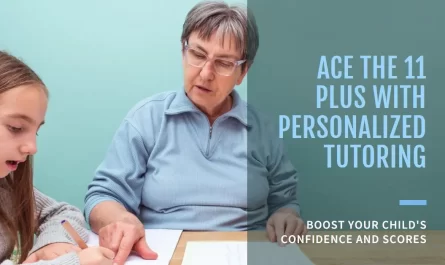These events offer a platform for scholars to share research, engage in scholarly discourse, and build professional networks beyond institutional boundaries. Maximizing opportunities in academic events goes beyond attendance; it involves a proactive and strategic approach to ensure a meaningful and impactful experience.
This guide tells you about ten ways to learn the landscape of academic events, empowering researchers, scholars, and academics to extract the utmost value from each gathering. From networking skills to crafting compelling abstracts, mastering various presentation formats, and leveraging technology for efficient engagement, these strategies aim to transform academic events into transformative experiences.
As we begin on this journey, the goal is to attend and actively contribute, collaborate, and pave the way for sustained academic success in higher education’s dynamic and interconnected world.
Building Meaningful Connections
Building meaningful connections is the main idea of maximizing opportunities in academic events, transcending the exchange of business cards to fostering relationships that endure beyond the conference halls. Approach networking with authenticity and curiosity, seeking to understand your peers’ research passions and academic journeys. Attend social events, join discussion groups, and participate in networking sessions to create many connections. Beyond immediate collaborations, these connections can evolve into mentorships, research partnerships, and lifelong professional friendships.
Actively listen, share your insights, and express genuine interest in others’ work. Virtual platforms and social media provide additional avenues for connection; utilize these tools to extend your network globally. Remember, building meaningful connections isn’t just about what you can gain; it’s also about contributing to the academic community and cultivating relationships that enrich the collective scholarly experience.
Captivating Presentations
Compelling visuals, such as well-designed slides and illustrative graphs, to enhance comprehension and retention. Incorporate interactive elements to stimulate audience participation, fostering a dynamic exchange of ideas. Employ anecdotes, case studies, or relatable examples to humanize complex concepts, making your content accessible to a diverse audience. As you captivate your audience with insightful content, consider employing a subtle transition to acknowledge the potential challenges students face in mastering these presentation skills. This acknowledgment opens the door to valuable resources, including assignment help services, providing additional support for students seeking to enhance their academic communication abilities.
Strategies for Engaging Academic Dialogue
Actively listen to fellow scholars, fostering an environment where each contribution is valued and respected. Engaging in collaborative discussions, whether through panel sessions, workshops, or informal gatherings, cultivates a sense of community and shared exploration of academic topics. Employing visual aids, such as thought-provoking slides or interactive presentations, can also enhance engagement and facilitate clearer communication of complex ideas. Technology to extend the dialogue beyond the physical event space. Virtual platforms, social media, and dedicated forums provide additional avenues for ongoing discussions, connecting scholars globally and fostering a vibrant academic community.
Moderators can be crucial in facilitating a balanced conversation, encouraging quieter voices, and steering the dialogue toward meaningful exploration of the presented topics. By implementing these strategies, academic dialogue becomes a dissemination of knowledge and a collaborative journey toward deeper understanding and shared intellectual growth.
Workshops And Networking
Workshops provide a hands-on environment where scholars can delve into specific topics, refine methodologies, and acquire new skills. These interactive sessions foster a deeper understanding of complex concepts, encouraging collaborative learning among participants.
Attendees can connect with peers, mentors, and potential collaborators, expanding their academic circles. Utilize these opportunities to exchange ideas, discuss ongoing research, and seek advice from seasoned academics. Effective networking goes beyond collecting business cards; it involves genuine engagement, active listening, and a willingness to share insights. By actively participating in both, scholars can amplify the impact of their academic event experience, leaving them with enriched knowledge, enhanced skills, and a network of valuable connections that extend beyond the confines of the event itself.
Finding and Forming Research Partnerships
To initiate partnerships effectively, actively engage with fellow researchers at academic events, seeking common ground and shared research interests. In the quest for collaboration, consider attending specialized workshops or panels geared toward your research niche. These forums offer targeted opportunities to identify potential research allies and engage in substantive discussions. Networking sessions provide a fertile ground for initiating conversations that may evolve into fruitful partnerships.
Online platforms further enhance the quest for research collaborators. Utilize academic networks, forums, and collaborative research websites to connect with scholars who share your research agenda. Embracing technology can bridge geographical gaps, facilitating partnerships with researchers worldwide.
For those seeking additional support and expertise, online dissertation writing services in UK can be valuable. Services like these help refine research and offer a collaborative avenue for scholars aiming to enhance the quality and impact of their collaborative research endeavors.
Collaborative Opportunities
Collaboration transcends disciplinary boundaries, allowing researchers to synergize their expertise, methodologies, and insights. To harness collaborative opportunities effectively, scholars must actively engage with peers, attending conferences, workshops, and networking events where interdisciplinary connections flourish.
Joint publications, shared projects, and collaborative grants are tangible outcomes that arise from these partnerships, contributing to a collective body of work that transcends individual accomplishments. Engaging in collaborative opportunities is not solely about expanding research endeavors but cultivating a community of shared learning and innovation.
As technology facilitates global connectivity, virtual collaboration has become increasingly prevalent. Online platforms, collaborative tools, and virtual conferences break down geographical barriers, enabling scholars to collaborate with peers worldwide.
Post-Event Follow-Up
Promptly sending follow-up emails expressing gratitude to colleagues, speakers, and potential collaborators reinforces the connections made during the event. Recapitulate key discussions, express interest in future collaborations, and share relevant resources to solidify these connections. This not only maintains the momentum of the intellectual exchange but also sets the foundation for sustained partnerships. Collaborative projects, joint research initiatives, and shared publications often emerge from these post-event interactions.
Post-event follow-up is not merely a courtesy but a strategic endeavor to transform the inspiration garnered during the event into tangible, ongoing collaborations. By actively nurturing connections beyond the event’s conclusion, scholars contribute to the continuous enrichment of academic discourse and cultivating a vibrant and interconnected scholarly community.
Conclusion
Strategic networking, crafting impactful abstracts, and mastering diverse presentation formats are essential skills that lay the groundwork for successful academic participation. Engaging in collaborative opportunities, embracing technology, and effective time management further enhance the overall experience.
The post-event follow-up, a critical but often overlooked phase, transforms initial connections into enduring collaborations. By actively nurturing relationships through emails, social media, and professional networks, scholars contribute to the continuous enrichment of academic discourse.



